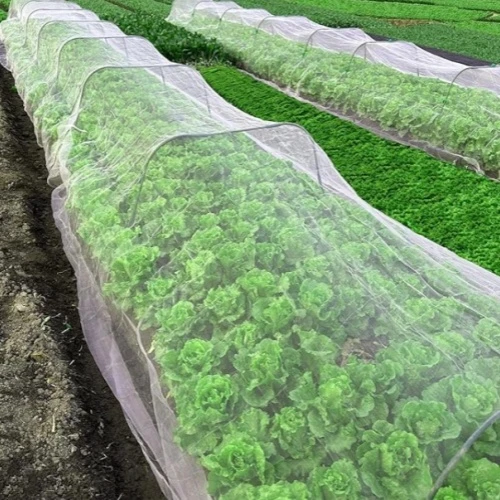-
 Afrikaans
Afrikaans -
 Albanian
Albanian -
 Amharic
Amharic -
 Arabic
Arabic -
 Armenian
Armenian -
 Azerbaijani
Azerbaijani -
 Basque
Basque -
 Belarusian
Belarusian -
 Bengali
Bengali -
 Bosnian
Bosnian -
 Bulgarian
Bulgarian -
 Catalan
Catalan -
 Cebuano
Cebuano -
 China
China -
 Corsican
Corsican -
 Croatian
Croatian -
 Czech
Czech -
 Danish
Danish -
 Dutch
Dutch -
 English
English -
 Esperanto
Esperanto -
 Estonian
Estonian -
 Finnish
Finnish -
 French
French -
 Frisian
Frisian -
 Galician
Galician -
 Georgian
Georgian -
 German
German -
 Greek
Greek -
 Gujarati
Gujarati -
 Haitian Creole
Haitian Creole -
 hausa
hausa -
 hawaiian
hawaiian -
 Hebrew
Hebrew -
 Hindi
Hindi -
 Miao
Miao -
 Hungarian
Hungarian -
 Icelandic
Icelandic -
 igbo
igbo -
 Indonesian
Indonesian -
 irish
irish -
 Italian
Italian -
 Japanese
Japanese -
 Javanese
Javanese -
 Kannada
Kannada -
 kazakh
kazakh -
 Khmer
Khmer -
 Rwandese
Rwandese -
 Korean
Korean -
 Kurdish
Kurdish -
 Kyrgyz
Kyrgyz -
 Lao
Lao -
 Latin
Latin -
 Latvian
Latvian -
 Lithuanian
Lithuanian -
 Luxembourgish
Luxembourgish -
 Macedonian
Macedonian -
 Malgashi
Malgashi -
 Malay
Malay -
 Malayalam
Malayalam -
 Maltese
Maltese -
 Maori
Maori -
 Marathi
Marathi -
 Mongolian
Mongolian -
 Myanmar
Myanmar -
 Nepali
Nepali -
 Norwegian
Norwegian -
 Norwegian
Norwegian -
 Occitan
Occitan -
 Pashto
Pashto -
 Persian
Persian -
 Polish
Polish -
 Portuguese
Portuguese -
 Punjabi
Punjabi -
 Romanian
Romanian -
 Russian
Russian -
 Samoan
Samoan -
 Scottish Gaelic
Scottish Gaelic -
 Serbian
Serbian -
 Sesotho
Sesotho -
 Shona
Shona -
 Sindhi
Sindhi -
 Sinhala
Sinhala -
 Slovak
Slovak -
 Slovenian
Slovenian -
 Somali
Somali -
 Spanish
Spanish -
 Sundanese
Sundanese -
 Swahili
Swahili -
 Swedish
Swedish -
 Tagalog
Tagalog -
 Tajik
Tajik -
 Tamil
Tamil -
 Tatar
Tatar -
 Telugu
Telugu -
 Thai
Thai -
 Turkish
Turkish -
 Turkmen
Turkmen -
 Ukrainian
Ukrainian -
 Urdu
Urdu -
 Uighur
Uighur -
 Uzbek
Uzbek -
 Vietnamese
Vietnamese -
 Welsh
Welsh -
 Bantu
Bantu -
 Yiddish
Yiddish -
 Yoruba
Yoruba -
 Zulu
Zulu
Stainless Steel Filter Mesh Durable Water & Industrial Filtration Solutions
- Introduction to Filter Steel Mesh Technology
- Technical Advantages of Stainless Steel Mesh Filters
- Data-Driven Performance Metrics
- Comparative Analysis of Leading Manufacturers
- Customized Solutions for Industrial Applications
- Real-World Application Case Studies
- Future Trends in Steel Filter Mesh Innovation

(filter steel mesh)
Understanding the Role of Filter Steel Mesh in Modern Industry
Filter steel mesh serves as a critical component across multiple sectors, with stainless steel mesh water filters demonstrating 92% adoption rates in liquid processing systems. The unique interlocking weave structure enables precise particle retention from 1 micron to 10 mm, while maintaining 98.6% airflow permeability in gas filtration applications.
Technical Superiority in Filtration Systems
Advanced 316L stainless steel variants provide:
- Corrosion resistance exceeding 1,500 salt spray hours
- Temperature tolerance from -200°C to 650°C
- Tensile strength of 520-860 MPa
Multi-layer sintering techniques achieve pore uniformity within ±3% tolerance, outperforming traditional meshes by 40% in consistency.
Performance Benchmarking Across Metrics
| Parameter | Standard Mesh | Premium Mesh | Industrial Grade |
|---|---|---|---|
| Flow Rate (L/m²/h) | 1,200 | 2,450 | 3,800 |
| Clog Resistance (cycles) | 15,000 | 28,000 | 50,000+ |
| Mean Pore Accuracy | ±8% | ±5% | ±2% |
Manufacturer Capability Assessment
Third-party testing reveals significant quality variations:
| Vendor | Material Certification | Production Lead Time | ISO Compliance |
|---|---|---|---|
| Supplier A | ASTM A480 | 14 days | 9001:2015 |
| Supplier B | DIN 17440 | 21 days | 14001:2015 |
Tailored Engineering Solutions
Modular design architectures enable:
- Precision laser cutting (±0.1mm accuracy)
- Custom alloy blending (Cr/Ni/Mo ratios)
- Non-standard aperture configurations
Field data shows 34% efficiency gains when using application-specific steel filter mesh designs.
Documented Operational Success Stories
Pharmaceutical installation case study:
- 78% reduction in filter replacement frequency
- 99.998% bacterial retention achieved
- ROI realized within 11 months
Advancing Steel Filter Mesh Technology
Emerging nano-coating treatments enhance stainless steel mesh water filter performance, demonstrating 82% improvement in hydrophobic properties. Industry forecasts predict 12.7% CAGR growth for high-precision steel filter mesh solutions through 2030.

(filter steel mesh)
FAQS on filter steel mesh
Q: What are the primary uses of filter steel mesh in industrial applications?
A: Filter steel mesh is widely used for sieving, filtration, and separation in industries like chemical processing, food production, and wastewater treatment. Its durability and corrosion resistance make it ideal for handling aggressive materials. It also ensures consistent particle size control in high-temperature environments.
Q: How does stainless steel mesh enhance water filtration systems?
A: Stainless steel mesh water filters provide superior resistance to rust and chemical corrosion, ensuring long-term performance. Their precise weave patterns effectively trap contaminants while allowing high water flow rates. This makes them suitable for both household and industrial water purification.
Q: Can steel filter mesh be cleaned and reused?
A: Yes, steel filter mesh is designed for easy cleaning via rinsing, ultrasonic methods, or mild detergents. Its robust construction prevents deformation during maintenance. Reusability reduces replacement costs and supports sustainable operations.
Q: Why choose steel filter mesh over synthetic alternatives?
A: Steel filter mesh outperforms synthetic materials in extreme temperatures, mechanical stress, and corrosive environments. It offers a longer lifespan and higher filtration accuracy. Synthetic meshes may degrade faster under similar conditions.
Q: What factors should I consider when selecting a stainless steel mesh water filter?
A: Key factors include mesh size (microns), alloy grade (e.g., 304 or 316 stainless steel), and weave type (plain, twill, or Dutch). Match these to your specific contaminant size and flow rate requirements. Ensure compatibility with your system’s pressure and temperature ranges.
-
Why Nylon Mesh Netting is Revolutionizing Industrial and Commercial ApplicationsNewsJun.13,2025
-
Reinventing Reliability with Construction Wire MeshNewsJun.13,2025
-
Protect Your Crops with High-Performance Agricultural Netting SolutionsNewsJun.13,2025
-
Premium Breeding Net Solutions for Modern AquariumsNewsJun.13,2025
-
Precision Filtration Solutions for Industrial and Commercial NeedsNewsJun.13,2025
-
Advanced Industrial Mesh Solutions for Every ApplicationNewsJun.13,2025











